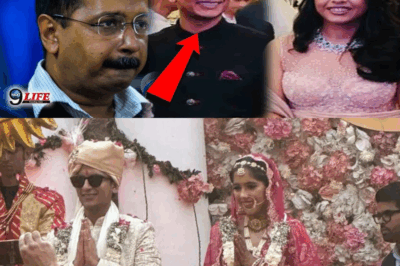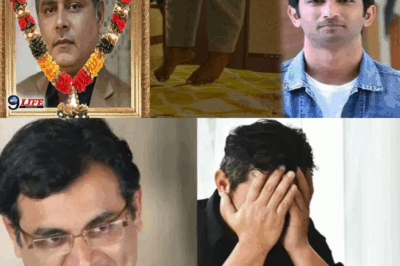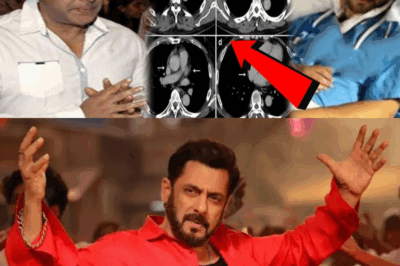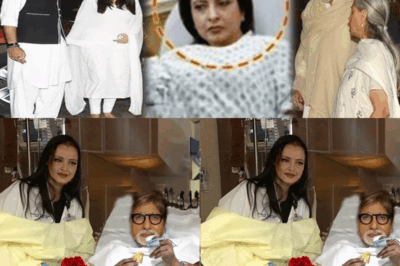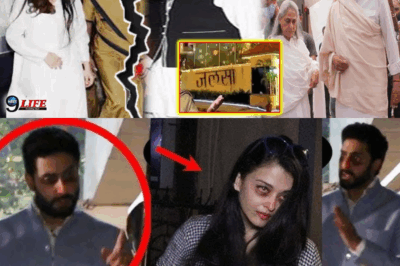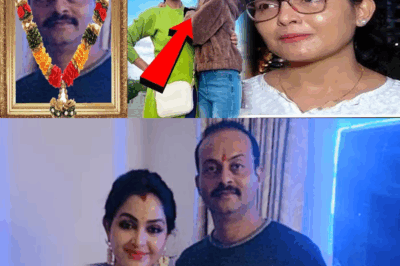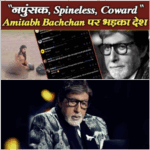This Week’s Major Development: Court Orders CBI to Respond
In a dramatic hearing held at the Special CBI Court in Mumbai, the judge reviewed arguments presented by legal representatives of the Rajput family, independent petitioners, and activists who claimed discrepancies in the investigation. The judge, after hearing preliminary submissions, has now ordered the CBI to file a comprehensive response to the objections raised against the closure report.
This decision comes after months of legal back-and-forth and follows a renewed plea filed by Sushant’s father, K.K. Singh, and sister Shweta Singh Kirti, both of whom have maintained that Sushant was “murdered” and that the truth is being “buried under bureaucracy.”
“We are not asking for revenge. We are asking for truth,” said Vikas Singh, the family’s lawyer. “The closure report leaves many questions unanswered. The court’s order is a step in the right direction.”
Key Points Raised in the Hearing
The petitioners challenging the closure report presented a number of compelling arguments:
Inconsistent Autopsy Procedures: The autopsy was allegedly conducted at night—an unusual procedure in high-profile cases. Critics argue the report lacks detailed injury timelines and toxicology confirmations.
Missing Surveillance Footage: No CCTV footage from the day of Sushant’s death was ever made public. Several cameras were reportedly “non-functional,” which raised suspicions of tampering.
Ignored Testimonies: Friends, staff, and colleagues who provided conflicting or unclear statements were allegedly never recalled or cross-examined.
Digital Evidence: Claims that Sushant’s phone data was only partially recovered, leaving out conversations and emails from the crucial time frame.
Conflict of Interest Allegations: Petitioners accused some officers involved in the initial Mumbai Police investigation of negligence or bias.
The CBI, in its brief response, denied any wrongdoing or oversight, stating that their investigation was “comprehensive and professional.” However, the court’s latest directive suggests that more scrutiny is needed.
The Role of AIIMS and Medical Opinions
One of the central pillars in the closure report was the AIIMS panel’s medical evaluation, which ruled out homicide. But this too became a topic of controversy.
Dr. Sudhir Gupta, who led the AIIMS forensic team, initially indicated the possibility of strangulation in media conversations before later declaring it a suicide. This inconsistency added to public skepticism.
The court has now indicated that expert testimonies from independent medical professionals may be required in the next phase of the case to either support or challenge the AIIMS report.
Public Reaction: Justice Delayed, Not Denied?
News of the court’s directive to the CBI has sparked an emotional response from the public. On social media, hashtags like #JusticeForSushant, #CBIUpdate, and #ReopenSSRCase trended nationwide within hours of the court order.
“It’s not just about Sushant anymore. It’s about faith in the system,” tweeted a fan.
“I feel hopeful for the first time in months,” said a user on Instagram, posting an old video of Sushant speaking about his dreams and love for science.
Many public figures, too, have cautiously welcomed the court’s involvement. Kangana Ranaut, one of the earliest celebrities to question the narrative of suicide, tweeted:
“Let the truth prevail. We owe it to his talent, his dreams, and his legacy.”
Family’s Long Struggle for Closure
For Sushant’s family, the road has been excruciating. From mental health debates to conspiracy theories, they’ve had to navigate an emotional rollercoaster while pushing for justice. The family relocated temporarily, avoided media, and focused on legal channels, but the lack of closure has only prolonged their grief.
In a heartfelt note shared on her social media, Shweta Singh Kirti wrote:
“My brother loved life. He had dreams, ambitions, and so much love to give. The world saw his smile. We saw his struggle. We won’t stop until the truth sees light.”
What This Means for the CBI
The court’s order puts the CBI in a delicate position. As India’s top investigative agency, any hint of bias or procedural lapses could have significant implications for its credibility. Legal experts suggest that the CBI must now re-evaluate portions of its report, possibly re-interview witnesses, and present a point-by-point rebuttal to each objection raised.
“The CBI cannot afford to be casual in this case. Public trust is at stake,” said senior lawyer Ujjwal Nikam.
A Legal Turning Point or Just Another Delay?
While the court’s directive marks a major moment, some remain skeptical. Will this lead to a genuine re-investigation, or merely another bureaucratic loop?
“We’ve seen procedural formalities before. What we need is political and legal will,” said activist Anjali Damania, who has followed the case closely.
But many believe the court’s order offers a renewed ray of hope. It shows that justice, even if delayed, is still being pursued.
Sushant’s Legacy Lives On
Beyond the courtrooms and headlines, Sushant Singh Rajput’s influence continues to grow. A gifted actor, passionate learner, and deeply curious soul, he left behind more than just performances—he left behind ideas.
Initiatives like the Sushant Singh Rajput Foundation (SSRF) have been launched to support mental health, education, and young artists. Fans continue to share his interviews, scientific posts, and philosophical musings online, keeping his memory alive.
“He was a rare gem,” said co-star and friend Ankita Lokhande in a recent interview. “We couldn’t protect him, but maybe we can protect the next Sushant by changing the system.”
What Happens Next?
The court has set a deadline of 6 weeks for the CBI to submit a detailed affidavit addressing all objections to the closure report. The next hearing is scheduled for mid-May 2025, where the court will decide whether to:
Accept the closure report as is
Direct a re-investigation or supplementary probe
Transfer the case to a special review committee
For now, all eyes are on the CBI. The burden isn’t just to answer questions—but to restore faith in justice.
Conclusion: A Case That Refuses to Be Forgotten
More than three years have passed since Sushant Singh Rajput’s death, but the case remains etched in the nation’s conscience. It represents more than just the loss of a beloved actor—it stands as a reflection of our society’s need for accountability, empathy, and systemic reform.
With the latest court order breathing new life into the investigation, there’s hope that the full truth—whatever it may be—will finally come to light. For his family, fans, and a grieving nation, that truth is the only closure that truly matters.
News
Just two days after the wedding, a revelation about Arvind Kejriwal’s son-in-law shocked his daughter Harshita.
A Shocking Revelation: The Story Behind Arvind Kejriwal’s Son-in-Law and the Impact on His Daughter Harshita Weddings are typically a…
Actor Lalit Manchanda hanged himself; his body was found in a locked room, similar to Sushant Singh.
Tragedy in Bollywood: The Untimely Death of Actor Lalit Manchanda The world of entertainment is often seen as one filled…
Salman Khan has been diagnosed with a life-threatening illness and, due to his suffering, attempted to take his own life. He is currently undergoing treatment in the United States.
Salman Khan Diagnosed with Life-Threatening Illness: Struggle, Despair, and Hope Amid Treatment in the United States Bollywood, with its dazzling…
Rekha has been diagnosed with cancer and has been admitted to the hospital, leaving Amitabh and Jaya shocked.
Rekha Diagnosed with Cancer: Hospitalization Leaves Amitabh and Jaya Shocked The world of Indian cinema is no stranger to dramatic…
Aishwarya Reached Jalsa House with the Police, Leaving Amitabh, Jaya, and Abhishek Shocked
Aishwarya Reached Jalsa House with the Police, Leaving Amitabh, Jaya, and Abhishek Shocked Mumbai, the city of dreams, is no…
A revelation has come out about actress Shubhangi Atre’s 18-year-old daughter; the family is devastated by the father’s death.
A Revelation Has Come Out About Actress Shubhangi Atre’s 18-Year-Old Daughter; The Family Is Devastated by the Father’s Death…
End of content
No more pages to load

